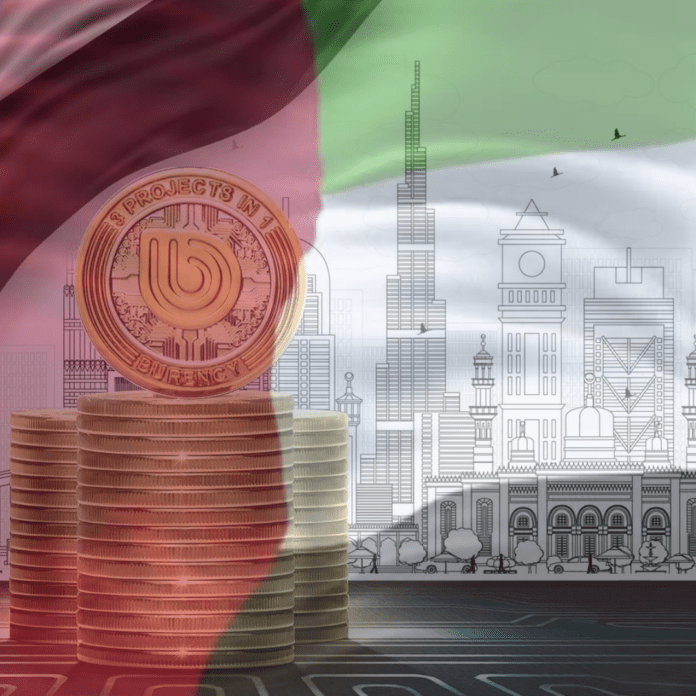UAE as a Crypto Hub
Keeping its aim to embrace new technological breakthroughs and establish itself as one of the world’s financial hubs, the UAE announced its first law regulating cryptocurrency in March of this year. Prior to this, the UAE was apprehensive of crypto coins and their related blockchain technology due to their decentralized nature and lack of regulations. However, seeing the boom in the popularity of virtual real estate and its integration into everyday financial activities, the UAE has finally decided to take the leap and accommodate cryptocurrency by creating laws to regulate it for safe use.
The Dubai Virtual Asset Regulatory Authority (VARA) is in charge of creating and regulating laws regarding the exchange of and trading of cryptocurrency in the UAE.
Previously, the only legal platform for trading in virtual assets like Bitcoin in the UAE was through centralized exchanges like CoinMama and BitOasis. However, following this development, many popular cryptocurrency exchanges like Kraken, Bybit, and Crypto.com are looking into setting up shops in the region. In fact, finance became the first International crypto-exchange platform to receive permission to operate in Dubai and Abu Dhabi, spelling good news for other platforms looking to enter the Middle-Eastern market.
To accommodate the new changes and to contribute towards making the UAE a crypto hub, many high-end real estate developers announced that they are to begin accepting payments made in Bitcoin (BTC) and Ether (ETH)- two of the world’s most popular and heavily invested in crypto coins.
The risks of using Virtual assets for high-volume purchases
However, the firms failed to account for the fact that cryptocurrency is one of the most common means for criminals to carry out money-laundering operations. Money launderers are also known to pour money into high-value items like luxury goods, automobiles, land, and real estate to quickly dispose of illegally-gotten funds without the need for such background verification that would be required if they attempt to deposit it in their bank accounts. Depositing large sums of money with no discernable source is bound to raise some red flags and prompt investigation, which is what money launderers are seeking to avoid.
New policies regarding Crypto transactions in real-estate purchases
Keeping these points in mind, the government has decided to investigate all crypto payments made towards the real-estate sector, despite the statements of some real-estate companies.
Real estate firms are now required to report any transactions made using virtual assets or crypto coins to the country’s money laundering authorities, even if a fraction of the entire payment is made through these means. Hence the policies have got stringent for real estate sector in UAE.
How the UAE landed itself on the Money Laundering Watchdog Grey List
According to the UAE’s Minister for Economics, Abdulla bin Touq Al Marri, this new policy will help clamp down on illegal practices like money laundering of funds gained through criminal activities like drug peddling, human trafficking, smuggling, and more, which can negatively impact the society and disrupt the economy and work environment.
Besides payments made in crypto, firms are now also required to report cash payments of AED 55,000 and upwards to identify potential instances of laundering of dirty money. However, the government has not set any similar limit when it comes to cryptocurrency, stating that all real-estate firms must report even the smallest transaction made using virtual assets to the authorities.
In these cases, all law firms, real estate agents, and brokers must file and submit reports to the UAE Financial Intelligence Unit (FIU), whose job is to identify money-laundering instances and track them to their source to apprehend criminals. These new policies will help deter criminals from investing in and corrupting the real-estate sector and provide provisions to catch them if they do decide to ‘invest’.
Conclusion
The UAE recently announced its intentions to become one of the world’s first ‘Crypto Hubs’, overturning its previous apprehensive stance on virtual assets. Major cryptocurrency exchanges like Binance, Crypto.com, and Kraken are all set to establish themselves in the region after receiving permission from the UAE government to do so, provided they follow their rules and regulations. Keen to contribute to UAE’s identity as an upcoming crypto-hub, many real-estate developers stated that they would provide buyers with the option to pay in cryptocurrency. However, the government soon overruled this, fearing increased money-laundering operations through high-volume cryptocurrency transactions. The government’s new policy states that all cryptocurrency transactions in the real-estate sphere must be reported to higher authorities for investigation.


